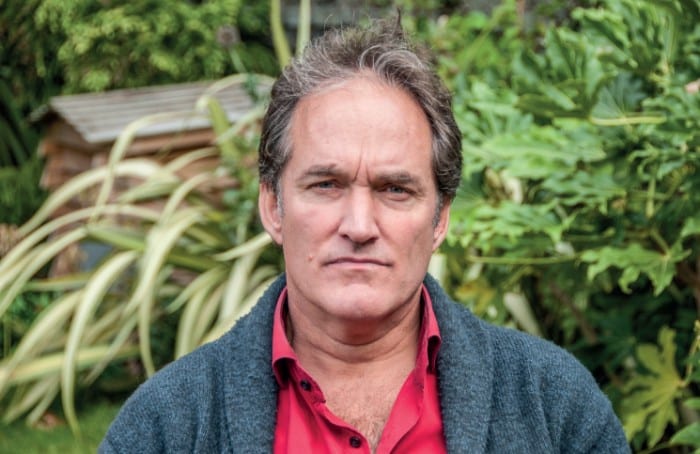By Lucy Caulkett-
Former BBC reporter, Jonathan Maitland,(pictured) is to feature a theatrical drama about the life of Princess Diana this week until the end of November.
The drama centers around the Martin Bashir scandal, after the former BBC journalist faked bank statements to lure the late Princess Diana to give her well globalized interview on panaroma in 1995.
Princess Diana, the enduring icon of grace and compassion, has been the subject of countless portrayals in recent years, from the lavish dramatizations of “The Crown” to the audacious and often parodic retellings in “Diana: The Untold and Untrue Story.”
Yet, as the world continues to be captivated by her enigmatic life, local playwright Jonathan Maitland returns to the spotlight to take on the subject of Diana in a way that he feels has been missing from both stage and screen – with a deep, serious dive into her story.
“Despite her being a hugely significant figure in our recent history, we’ve yet to truly explore Princess Diana’s story,” Jonathan Maitland, told the Haringey Community Press .
His latest play, “The Interview,” is set to change that narrative by offering a fresh perspective on a complex woman who defied the expectations of her time.
Maitland describes Diana as “like a feather trying to battle against the wind, an individual trying to assert her own autonomy, caught in the competing crosscurrents of her desires and duties and the expectations of others.”
In a world where fame often equals fascination, Maitland recognizes that writing about a globally renowned figure like Diana is bound to find an eager audience.
However, his interest in Diana runs deeper than just her fame. Maitland’s unique connection to her story lies in her link to journalist Martin Bashir, with whom he shared the trenches during their reporting years on ITV’s “Tonight” program. It’s a connection that adds a personal dimension to Maitland’s exploration of Diana’s story.
“The Interview” focuses on the infamous 1995 interview of Princess Diana by journalist Martin Bashir. The widely accepted narrative is that Bashir manipulated Diana, a point Maitland doesn’t dispute entirely. But he takes a deeper dive, questioning whether Diana might have manipulated Bashir as well.
Maitland’s play endeavors to resurrect this chapter of history and delve into the circumstances that led to the interview. This isn’t the first time Maitland has crafted a narrative around a historic conversation, with Geoffrey Howe’s famous 1990 speech for Margaret Thatcher serving as the basis for his 2015 play, “Dead Sheep.”
However, adapting a historical character, especially one as iconic as Princess Diana, is no small feat. Maitland recognizes the challenges in writing and characterizing Diana.
He aims to avoid the extremes of either canonizing her or turning her into a caricature. “She wasn’t Mother Teresa with great hair,” he quips, emphasizing the complexity of her character.
As for portraying her on stage, Maitland acknowledges the actor’s responsibility to present a real, believable person rather than engaging in impersonation. Balancing authenticity and audience recognition is a delicate task, as the play aims to strike a chord with its viewers.
But what makes “The Interview” relevant today? According to Maitland, it’s because the issues Diana addressed in her interview are as important and relevant today as they were in 1995. In a society where disclosure was rare, Diana opened up about her struggles with postnatal depression, among other personal issues.
Maitland also questions the decisions by Prince William and the BBC to effectively ban the interview, a move that many find questionable.
As for why the stage is the right place for Diana’s story, Maitland believes there’s something about a living, breathing play in a theatre that resonates deeply with the audience, a quality that other art forms can’t quite replicate.
“The Interview” promises to shed new light on the enigmatic Princess Diana, offering a fresh perspective on her complex and captivating life.




